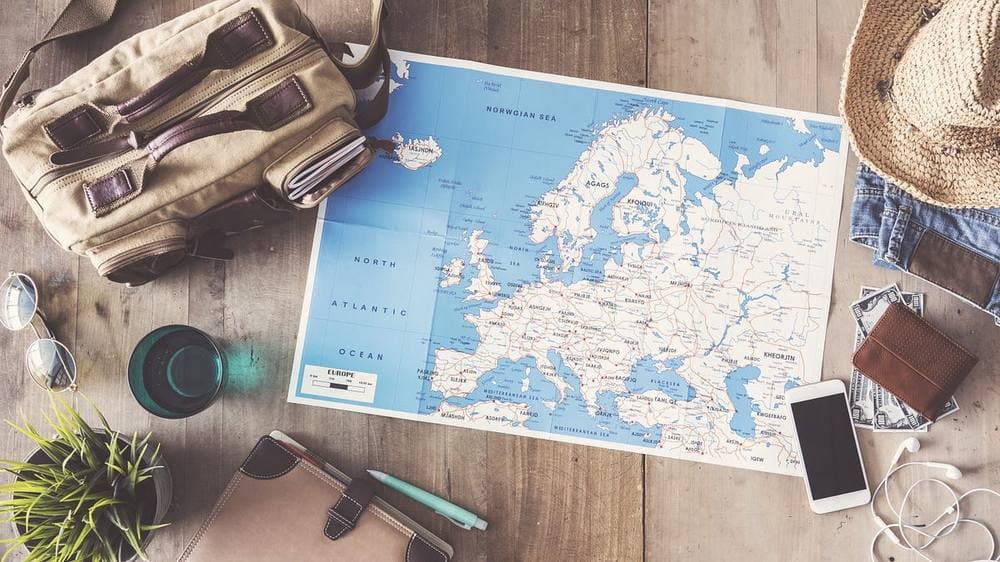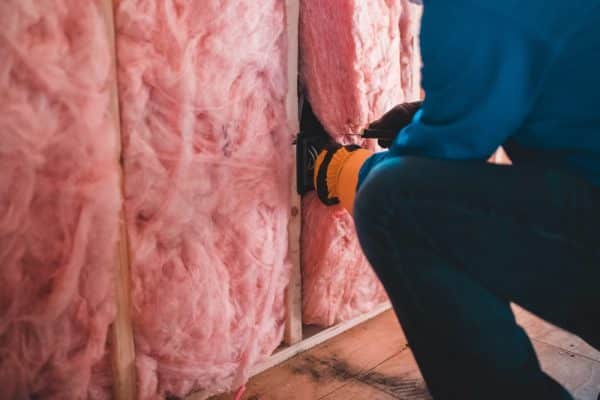
Are you planning on moving overseas? You are not the only one.
According to a report in 2020, an estimated 272 million people around the world live in a different country to which they were born.
Whether you are thinking of moving to New York to try and make it big in the finance world or heading off to Antigua to live near one of its 365 beaches, moving to an overseas location can be an exciting prospect.
However, it can also be daunting, with lots to organise. Sadly, it’s not just a case of packing your belongings and heading to the airport. Instead, it would be best to consider a whole host of practical and logistical considerations before embarking on this life-changing journey.
The famous American radio speaker and author Earl Nightingale once said, ‘All you need is the plan, the road map and the courage to press on to your destination’.
With that in mind, if you plan on starting a new life overseas, here are some tips on what you need to do to make the process smoother and less stressful.
Do Your Research
Before planning to move overseas, you should thoroughly research your destination.
Doing this includes looking into the specific areas of where to live, your initial accommodation, and what work is available. When looking into any given area, be sure to factor in things like proximity to the airport (to fly home when needed) and what services and amenities are there, such as hospitals, schools, shops and public transport.
Familiarise yourself with the local laws, customs and culture to know what to expect when you arrive. Research your new home’s history, social organization, and how its government currently works. Read up on its social norms and rules of etiquette and learn a few words and phrases if you’re moving to a place where you don’t know the language. Researching and understanding the culture will help offset culture shock and minimize social faux pas.
Seek Out Useful Expat Resources
One of the huge benefits of moving countries in the digital age is that no matter where you are, there are plenty of expat communities and resources at hand, with helpful advice from people having been through similar experiences.
Official government, professional service providers or travel websites may be able to point you in the direction of some helpful communities. Communities can be either online or physically meet in the country in which you have chosen to live. Another option to find expatriate communities is to simply do a Google search; this will turn up a variety of options available.
Get Your Finances Sorted
Moving to another country can be costly. Aside from usual expenses like housing deposits, movers, and transportation, there are other costs, like visa documents, international insurance, and possibly hiring a lawyer. Therefore, having at least six months’ worth of savings is crucial when relocating overseas.
To be fully prepared, you must research exchange rates and the cost of living in your new location and create a monthly budget that fits your income. For instance, the cost of living in Calgary or Japan is likely much higher than in Bangladesh or Vanuatu. So, it pays to do this due diligence and save accordingly to set yourself up for your eventual move.
Consider getting an international credit card to avoid foreign transaction fees. You should also research banks in your new city and find out what paperwork you’ll need to set up a savings or checking account.
Research Tax Laws
If you are going to work in another country, you may be liable for taxes in your host country and your country of citizenship. Meet with an accountant to find out what your tax status will be when you are living abroad.
Ensure Your Passport is Valid and Apply for a Visa
To apply for a visa, you must have a valid passport. Usually, this constitutes having a renewal date of more than six months after your departure date.
Once you have renewed your passport or have enough time left on it, you should apply for a visa. Doing this can be a stressful experience, as there is always a chance of being denied with little explanation.
To reduce this risk, you should consult the official government website of your destination and find out what supporting documents are required for your application. Ensure that you have all the necessary documents in good condition and seek help from a professional with your application if needed.
The best way to avoid the stress of applying for a visa is to make sure you give yourself enough time to gather all the necessary documents before submitting your application.
Book Your Ticket
Once your visa has been approved, it’s time to celebrate! The government of your new homeland has given your dream of moving abroad the green light.
The best way to celebrate is to book your travel ticket. For most people, this will involve booking a flight, although some people might be able to drive or take a train or ferry to where they are going. Regardless of how you plan to get there, once you have secured your ticket, it gives you a definitive leaving date.
It also gives you a timeframe to work with to ensure you fully prepare for the move.
Find an International Removalist
You’ll no doubt want to take some of your prized possessions on your move. They could be anything from specific pieces of furniture and sports trophies to treasured ornaments and books.
Several moving companies offer services – such as overseas relocation with Muval – that will transport your possessions.
Bear in mind that moving your household goods overseas takes time – from Australia to England, it is roughly 12 weeks. It also may require additional permits.
Before engaging any international removalist’s services, research the companies, including online reviews, and get quotes. Check they have the proper accreditation and licences and see what other services they offer, including assistance with customs declarations.
Pack Smart
When packing for an overseas move, it’s important to pack smart. As a rule, you should only take items with real sentimental value that you can’t readily get in the country you are moving to.
Try and sell unwanted items to help you fund the move. Be sure to donate to charity or dispose of anything you can’t sell responsibly at the tip.
It might be worth keeping some of your items in storage so you can use them again should your move not work out and you decide to return home.
Pack strategically, using space-saving techniques such as rolling your clothes and packing cubes. It’s also a good idea to label all your boxes clearly so that you know what’s inside.
Photocopy Your Important Documents
Before you move, you must keep backups of all your crucial documents, including your passport, birth certificate, driver’s licence, visa information and immunisation records.
It’s recommended to store these copies securely, both in physical form and online. If you store them online, set up two-factor authentication to protect your personal information.
Get Immunised – Medical Requirements
Depending on where you are heading, you may need to get vaccinated against certain diseases and viruses.
Covid is obvious, but immunizations for other conditions like malaria, whooping cough, measles, mumps, tetanus, rubella and diphtheria may also be required.
It is worth checking with your nearest travel health clinic to ascertain which ones you need. Once you have had them, ensure your vaccination records are in an easy-to-get-to-place.
If you follow a treatment, ask your GP for additional prescription medications in case of any problems, such as delays, or an inability to have your prescription filled. You should also ask your practitioner for a list of alternative medication that could be used if you are unable to locate your usual prescription medication
Find Accommodation
When you move to a new country, you will need a place to stay. So, you would be well advised to have this sorted before your departure.
Whether you have a hotel or AirBnb booked, have a rental property lined up, or stay with family or friends, it is worth organising where you will stay for the first couple of days when you arrive in the new country.
Seek out rental agency websites and your local classifieds sites to start your search for a place to live in advance of getting to your new country. Spending a few months renting in an area will give a good idea as to how friendly the community is, and whether it has everything you need nearby such as medical providers, shops and schools.
Draw Up a Bucketlist
With all that organised, you are good to go!
As busy as you are trying to get everything together, make sure you enjoy the last few days in the current country where you live and spend a bit of quality time with family and friends.
Another good thing to do is draw up a bucket list of everything you want to see and do in the country you will be moving to.
They could be visiting world-class landmarks and destinations or participating in certain activities not readily available where you currently are. Whatever you decide upon, drawing up a bucket list will help you to embrace the experience and make the most of your overseas adventure.








